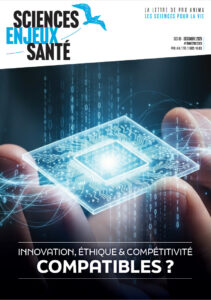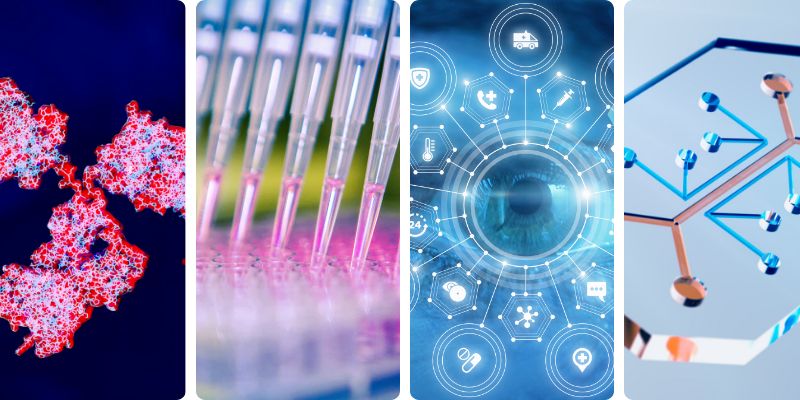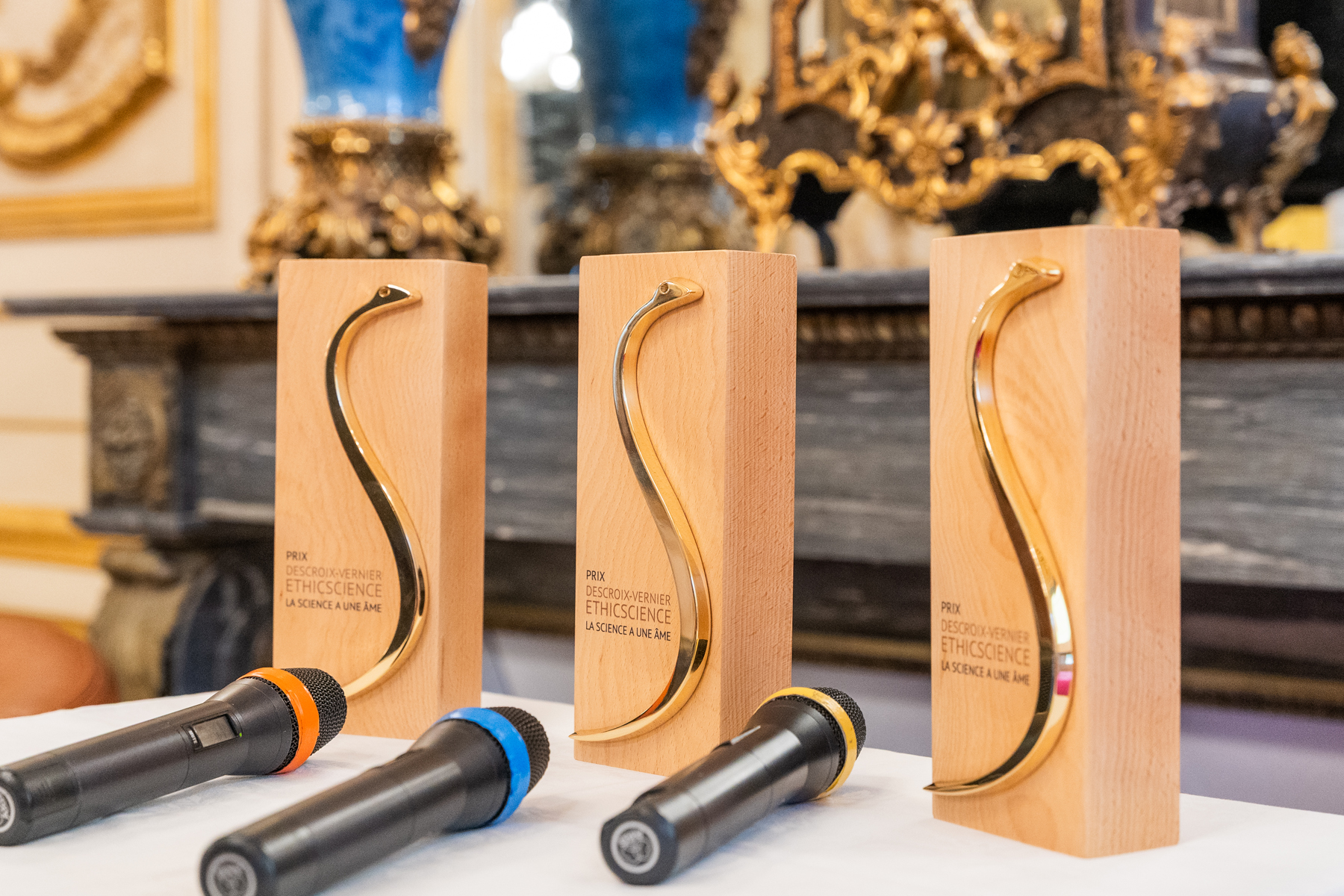
PRIX DVES 2025 : Laureate of the Innovation category
NEURON AS A SENSOR, NETRI
SES116 — March 2025Dr. Benoît Maisonneuve is Product Owner at NETRI. Holding a dual PhD in rheology and bioengineering, he has pioneered various technologies ranging from brain-on-a-chip to 3D hydrogel manufacturing and CRISPR/Cas9 strategies. His corporate experience includes clinical trial and pharmaceutical project management.
Dr. Thibault Honegger is the CEO of NETRI, which he co-founded in 2018. A graduate of the École Centrale de Nantes, he obtained his PhD in Biotechnology from the LTM (CNRS/Université Grenoble Alpes/CEA) in 2011. After a postdoctoral fellowship at MIT in Boston, he joined the CNRS as a research fellow in Grenoble to lead the microfluidic neuroengineering team. He has published over 40 articles and is the inventor of 12 patents.
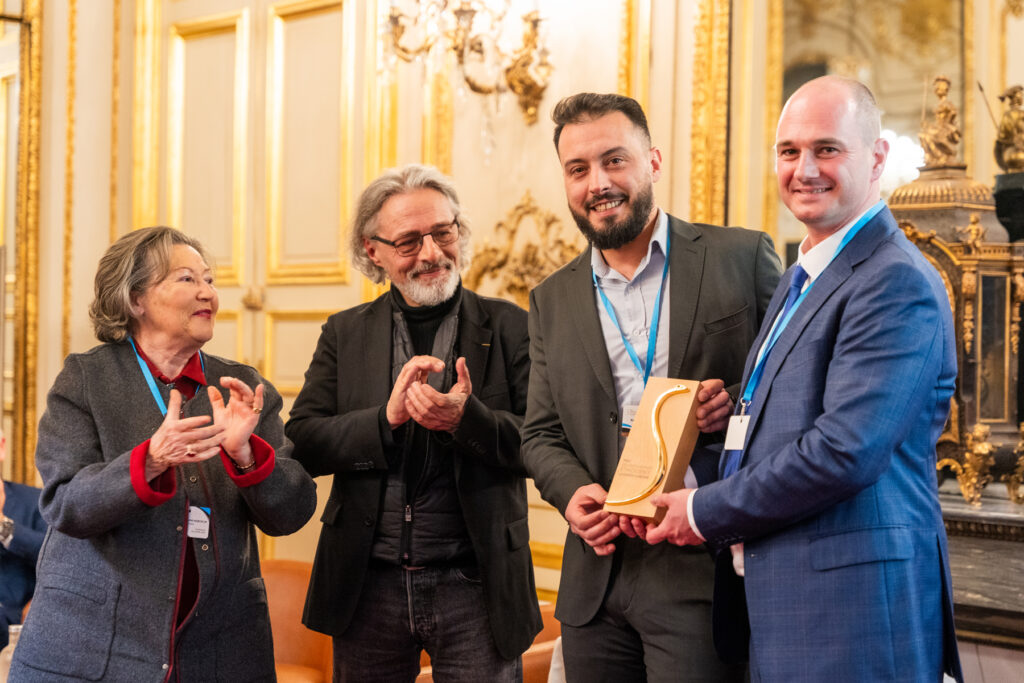
Pro Anima Committee: Could you briefly introduce your “Neuron as a Sensor” project for our readers, its specific features, the objectives and results (in terms of innovation and/or application) you expect, and by when?
Dr. Thibault Honegger and Dr. Benoit Maisonneuve: “Neuron as a Sensor” is a revolutionary project that uses the natural capacity of neurons as sensors to digitize the biological effect of compounds (drugs or other chemicals) on human biology. Using organ-on-a-chip technology combined with AI (artificial intelligence), we record neuronal activity to establish discriminatory digital signatures of healthy, pathological, or substance-induced conditions (drugs, pesticides, insecticides, etc.).
This approach, more predictive and ethical than animal testing, makes it possible to assess the efficacy of drugs and the toxicity of various chemical compounds. We have already demonstrated the feasibility of this technology and are continuing to develop it to expand its application. In the medium term, our goal is to offer a reliable and standardized alternative to animal testing to accelerate the development of safer and more effective treatments, increase the level of protection for populations, and reduce the use of animals when they are not essential.
“Testing the countless number of chemicals and drugs solely on animals is not only ineffective, but also expensive, time-consuming, and largely insufficient given current challenges.
P.A.: The unique feature of the Descroix-Vernier EthicScience Prize is its promotion and recognition of innovative research programs outside of animal models. What were your motivations, the reasons that led you to work on and/or develop these innovative human-centered tools?
TH and BM: Beyond the questionable ethical aspect of using animals, these models are often poorly predictive of humans due to the biological differences between species. Testing the countless number of chemicals and drugs solely on animals is not only ineffective, but also expensive, time-consuming, and largely insufficient given current challenges. Furthermore, the volume of compounds to be tested is colossal: it would be unrealistic, both ethically and logistically, to evaluate them all using animal models. Our “Neuron as a Sensor” approach aims to offer a more relevant alternative focused on the use of human stem cells.
By using human neurons in our organ-on-a-chip devices, we record their digital signatures, which we can then link to human biological responses by comparing them to our library of digital signatures of reference compounds. This revolutionary approach allows for more precise assessment of compound toxicity and efficacy, accelerates the development of new treatments, and provides a reliable alternative to animal testing. It also addresses a major public health challenge: by testing a larger number of substances (alone or in combination) with greater precision, we strengthen public protection against the risks associated with chemicals and drugs.

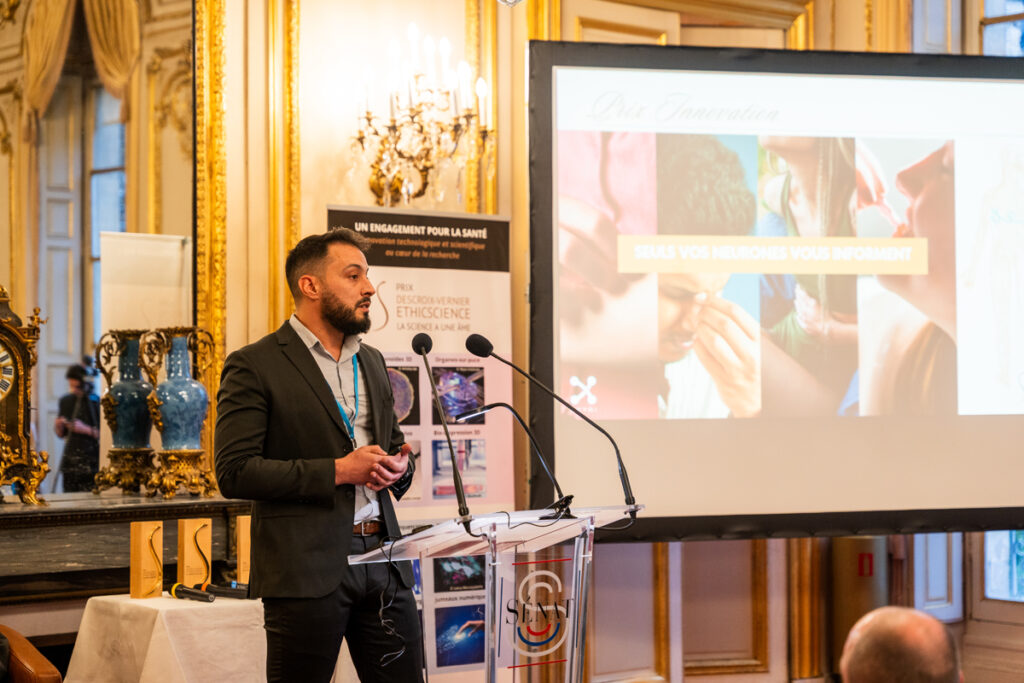
P.A: What do you think makes these new non-animal models so powerful, and in your experience, what motivates a researcher to use these innovative tools?
TH and BM: The strength of new non-animal models lies primarily in their ability to better reflect human biology. Unlike animal models, which suffer from interspecies differences that make predictions uncertain, our human cell-based systems allow for more relevant and transposable results. It is more ethical, faster, and allows for the analysis of a much larger volume of compounds, which is impossible with animal testing due to the cost, time, and number of animals required.
What motivates a researcher to adopt these tools is, above all, the quest for more reliable data to better understand biological effects and mechanisms, accelerate the development of new therapeutic solutions, and increase the level of protection for populations. There is also growing regulatory and societal pressure to limit animal experimentation, as well as a clear scientific interest in more modern approaches integrating AI and advanced technologies such as organs-on-chips.
P.A.: Into which research context (French, European, international) does your work fit ? What are the challenges of your project?
TH and BM:Our work spans several scales — French, European, and international — because the challenges it addresses are global and multidimensional.
- At the French level, our technology represents a major advancement for scientific and industrial innovation. Developed and manufactured in our factory in Lyon, it contributes to national technological sovereignty and the creation of skilled jobs in the field of biotechnology. It will also ultimately ease pressure on our healthcare system by accelerating the development of more effective drugs and reducing the costs associated with clinical trials. The French government is also tackling the problem head on with the CSF-ITS and in particular Project 14 focused on organoids and organs-on-chips, that Thibault Honegger, representing France Biotech, is co-piloting together with Jean-Dominique Guitton of Biovalley France.
- At the European level, we are part of a dynamic driven by initiatives such as the Green Deal and the REACH regulation, which aim to increase the level of protection for populations. We are therefore at a pivotal moment to promote the transition to alternative methods to animal testing, and not just testing more substances on animals. By offering a more predictive and ethical solution, we are helping to meet these regulatory and societal expectations.
- Internationally, our approach addresses a crucial need: testing more compounds, more quickly, and with greater reliability. Today, many substances remain under-evaluated due to a lack of adequate resources. Our technology offers a scalable and accessible alternative, promoting better protection of populations against toxic risks, while making new treatments more affordable and accessible worldwide.
In this dynamic, NETRI plays an active role within numerous think tanks and standards-setting groups at the French, European, and international levels, to advance regulatory change and facilitate the adoption of new, more predictive, ethical, and effective approaches.
P.A: Which point in your career and research does this award mark you out, and what will it allow you to accomplish?
TH and BM: This award comes at a key moment in our work. After several years of developing our technology, we have demonstrated the feasibility and potential of this approach with solid proofs of concept, and we already have strategic collaborations with academic, industrial, and regulatory stakeholders.
This award will allow us to accelerate the validation and adoption of our technology on a larger scale. Concretely, this means:
- Expanding our digital library by testing more compounds to strengthen the robustness and precision of our analyses.
- Developing our artificial intelligence tools to better interpret data and refine our discrimination capabilities.
- Facilitating regulatory acceptance by continuing our interactions with health agencies and actively contributing to discussions on alternative methods.
In short, this award is a recognition that gives us not only increased visibility, but also additional means to move biomedical research towards more predictive, ethical and effective approaches.
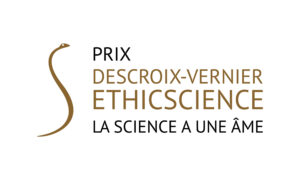
Image credit: Comité scientifique Pro Anima, Axel Coquemon

